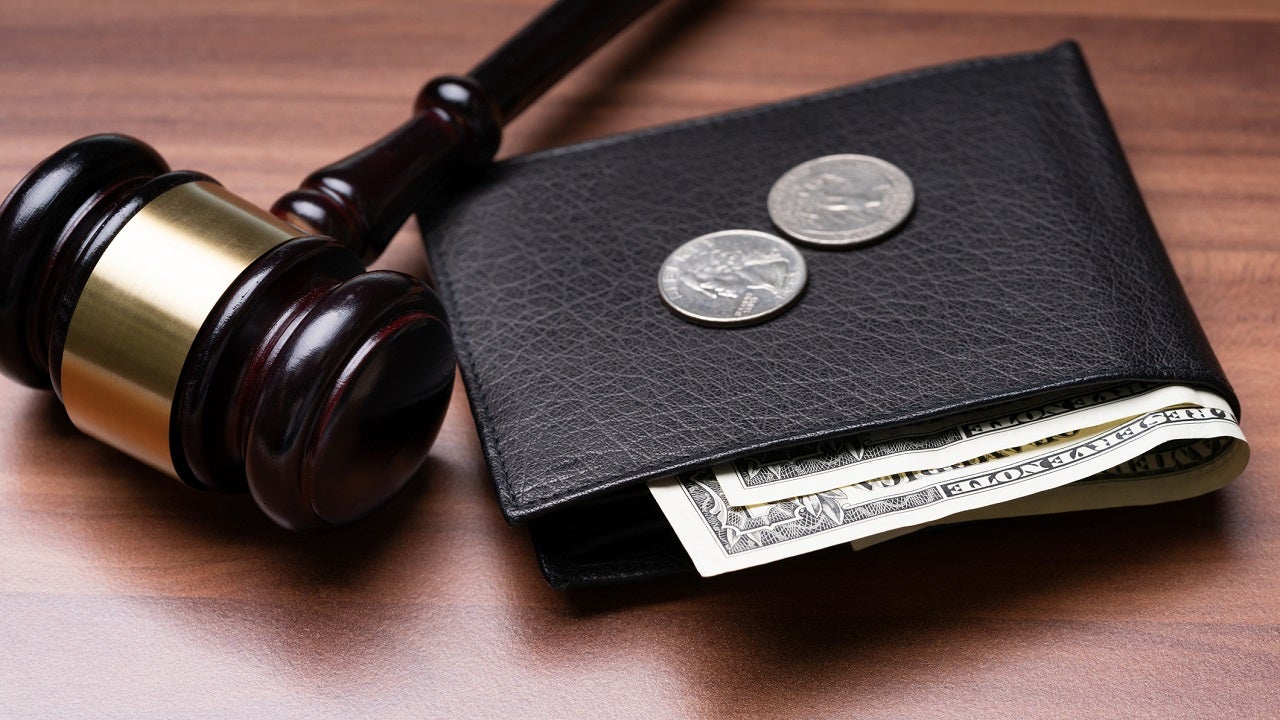Which debts can’t be discharged in bankruptcy?

- A discharge in bankruptcy legally eliminates the debtor’s obligation to pay specific debts, providing financial relief and stopping collection efforts from creditors.
- While bankruptcy discharge can eliminate many unsecured debts, certain obligations like child support, alimony, most tax debts and student loans are usually ineligible for discharge.
- In Chapter 7 bankruptcy, discharge often occurs within a few months after the debtor’s non-exempt assets are liquidated.
- In Chapter 13 bankruptcy, discharge comes only after completing a court-approved repayment plan, which usually takes three to five years.
Bankruptcy discharge is a cornerstone of the bankruptcy process, providing individuals and businesses with a path to relieve overwhelming debt and regain financial stability. When a debt is discharged, the debtor is no longer legally obligated to pay it, and creditors are prohibited from attempting to collect.
While discharge offers significant relief, it doesn’t eliminate all types of debt, and the rules can vary depending on the type of bankruptcy filed.
How discharge works in bankruptcy
In bankruptcy, a discharge represents a legal release of a debtor from the obligation to pay certain types of debts. This discharge is one of the primary objectives for individuals and businesses filing for bankruptcy, as it enables them to move forward without the burden of unmanageable debt.
Discharge occurs once a bankruptcy court has reviewed the debtor’s case, assessed their finances and approved the bankruptcy plan, usually under Chapters 7 or 13 of the U.S. Bankruptcy Code.
Notably, the discharge does not erase all debt types, as certain obligations, such as child support, taxes and student loans are typically non-dischargeable.
The process and timing of discharge vary depending on the type of bankruptcy filed. In a Chapter 7 bankruptcy, discharge typically happens after the debtor’s non-exempt assets are liquidated and distributed to creditors, often within a few months. In a Chapter 13 bankruptcy, on the other hand, the discharge is granted after the debtor completes a court-approved repayment plan, which may take three to five years.
In both cases, creditors are legally barred from collecting discharged debts once a discharge is issued, giving the debtor a fresh financial start.
Debts that are ineligible for discharge
Certain types of debts are generally ineligible for discharge in bankruptcy, regardless of the kind of bankruptcy filed.
These “non-dischargeable” debts include obligations such as child support and alimony, which are considered family support obligations and prioritized in bankruptcy proceedings. Additionally, debts arising from most tax obligations, particularly income taxes less than three years old and payroll taxes, are typically non-dischargeable.
Another category of non-dischargeable debt includes court judgments, such as fines or penalties from criminal cases or civil restitution orders. For instance, debts resulting from fraud, embezzlement, larceny or other malicious behavior may also be ineligible for discharge. This rule prevents individuals from discharging debts they created through illegal or deceitful actions.
Student loans are also difficult to discharge. Under the U.S. Bankruptcy Code, student loans from federal or private lenders are generally non-dischargeable unless the debtor can demonstrate “undue hardship,” a challenging standard to meet. This often requires showing that the debtor cannot maintain a minimal standard of living if forced to repay the loan, that this situation is likely to persist, and that there has been a good-faith effort to repay the loan. Because of this high threshold, very few student loan debts are discharged, and borrowers are often left with this debt post-bankruptcy.
Debts you can discharge in bankruptcy
Many unsecured debts can be discharged in bankruptcy:
-
Credit card debt and medical bills are common types of unsecured debt discharged during bankruptcy.
-
Unsecured personal and payday loans are often dischargeable. This includes personal lines of credit or installment loans. However, creditors may challenge the discharge if there was any intention of fraud or misrepresentation when taking out these loans.
-
Utility bills, past-due rent and certain civil judgments may also be discharged, except for any from fraud or malicious intent.
-
Some older income tax debts may also be discharged under specific conditions. For example, income tax debts that are over three years old and meet specific filing and timing requirements may be eligible for discharge. This exception does not apply to other tax types or recent income taxes, but it can be a substantial relief for those facing lingering tax burdens.
Other ways to deal with ineligible debts
Individuals and businesses have several other strategies to manage ineligible debts that cannot be discharged in bankruptcy. These strategies can offer critical relief and allow debtors to address ineligible debts without resorting to additional borrowing or unsustainable payment plans.
Repayment plan
One option is to negotiate a repayment plan directly with creditors.
Many creditors are open to adjusting payment terms, offering reduced interest rates or extending the repayment timeline to make payments more manageable.
For example, tax debts can sometimes be handled through an IRS installment agreement, which allows the debtor to repay the debt over time with an affordable monthly payment. Similarly, child support agencies and student loan servicers may offer repayment options that better fit the debtor’s financial circumstances.
Debt consolidation
Debt consolidation is another approach, especially for ineligible debts with high interest rates. By consolidating these debts, debtors can combine multiple obligations into a single loan, ideally with a lower interest rate and extended repayment period.
For federal student loans, borrowers may be eligible for consolidation or even income-driven repayment plans, which adjust monthly payments based on income and family size. This strategy makes the debt more manageable and can simplify monthly payments by reducing them to a single, consistent amount.
Partial forgiveness or restructuring
In cases where the debtor’s income is not enough to cover the debt, partial forgiveness or loan restructuring might be possible.
Some creditors, particularly for medical or tax debts, might be open to reducing the principal balance if the debtor demonstrates financial hardship. For example, the IRS offers an “Offer in Compromise” program that allows qualifying taxpayers to settle tax debts for less than the full amount owed. Also, some student loan programs offer forgiveness for individuals working in specific professions or underserved areas.
Is bankruptcy still a good choice for you?
Deciding whether bankruptcy is the right choice depends on individual financial circumstances, the types of debt involved and long-term financial goals. Bankruptcy can be a valuable tool for individuals or businesses overwhelmed by debt, offering a structured way to discharge eligible debts and get a fresh start.
It may be a good choice if most of the debt is unsecured (like credit card debt or medical bills), and you’re facing ongoing collection efforts, wage garnishments or lawsuits. For many, bankruptcy brings immediate relief by putting an automatic stay on collections, which can provide much-needed breathing room to address financial issues.
However, if a large portion of the debt is ineligible for discharge — such as recent tax obligations, child support, alimony or most student loans — bankruptcy may offer limited benefits. In such cases, filing could still be advantageous if it helps discharge other debts and frees up cash flow to manage non-dischargeable obligations. Additionally, filing for bankruptcy has long-term consequences, including a lasting impact on credit scores and potential limitations on future borrowing.
Consulting with a financial advisor or bankruptcy attorney can help clarify whether bankruptcy is the best option or if alternative strategies may be more beneficial in the long run.
The bottom line
Discharge in bankruptcy is a legal process that provides debt relief by eliminating the debtor’s responsibility to pay specific types of debt. Once a discharge is granted, creditors are permanently barred from collecting on discharged debts, allowing the debtor a fresh start.
However, obligations like recent taxes, child support, alimony and most student loans typically remain after bankruptcy. The timing and scope of discharge depend on the type of bankruptcy filed. Overall, discharge is a key component of bankruptcy aimed at enabling financial recovery, but it is limited by specific rules on what debts can be eliminated.
Frequently asked questions
Does a bankruptcy discharge affect my credit?
Yes, a bankruptcy filing will appear on your credit report for seven to 10 years, depending on the type of bankruptcy. However, discharge eliminates many debts, which can help improve your debt-to-income ratio and may make it easier to rebuild credit over time.
Do I need a lawyer to pursue bankruptcy discharge?
While not legally required, consulting with a bankruptcy attorney is highly recommended. Bankruptcy law can be complex, and a lawyer can help you understand your options, ensure your paperwork is complete and represent you in court.
Can a discharged debt be reinstated?
In certain circumstances, a discharged debt can be reinstated if it’s discovered that the debtor committed fraud or provided inaccurate information during the bankruptcy process.
Why we ask for feedback Your feedback helps us improve our content and services. It takes less than a minute to complete.
Your responses are anonymous and will only be used for improving our website.






